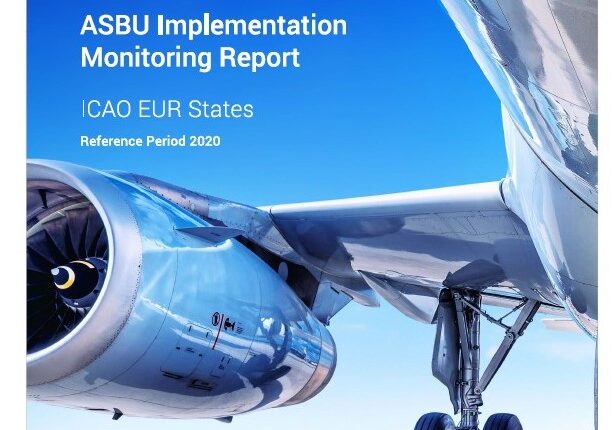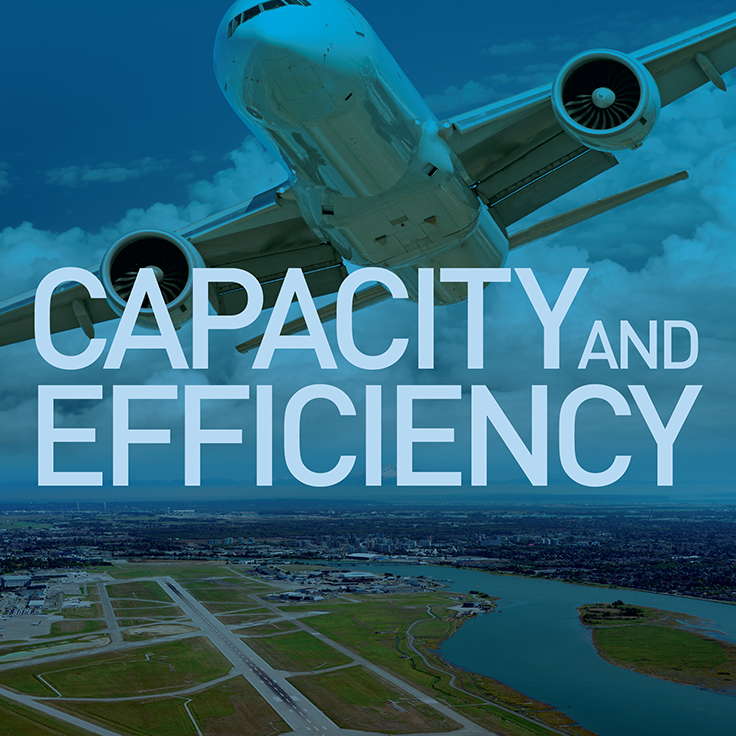![]() The Global Reporting Format
The Global Reporting Format
The ICAO EUR/NAT Regional Office placed emphasis on the implementation of the new Global Reporting Format (GRF) for runway surface conditions. GRF is the new ICAO methodology for assessing and reporting runway surface conditions, which enables the harmonized assessment and reporting of runway surface conditions and a correspondingly improved flight crew assessment of take-off and landing performance.
This implementation is expected to reduce the risk of runway excursions.
To support this implementation, the ICAO EUR/NAT Regional Office conducted three virtual events in 2021. The first event, the Webinar on Implementation of the New GRF for Runway Surface Conditions in the EUR Region, was held in English, French and Russian languages in May 2021. This event was attended by 504 participants, 35 States, 8 international organizations and 1 industry.
The Webinar addressed questions raised on GRF implementation resulting in a summary of GRF clarification and mitigation of concerns by subject (e.g. runway condition report, SNOWTAM, airline operations, etc.).
Two more events were conducted for Kyrgyzstan in July 2021 and the Interstate Aviation Committee in November 2021 that reviewed various information on the ICAO GRF website to assist in GRF implementation. Topics included the history of GRF, updated ICAO provisions, training courses available, GRF implementation checklist, ATIS, means of disseminating runway condition report, global implementation map and a question and answer session. Interpretation was provided in English and Russian languages.
As of 13 January 2022, 93% of reporting States in the ICAO EUR/NAT Regions have implemented GRF and follow-up events may be needed as non-implementation in this regard is a safety issue. Follow-up events in 2022 will be determined based on States’ needs and/or analysis of non-compliant SNOWTAM format with the new SNOWTAM format associated with GRF. Furthermore, feedback on implementation issues is expected to be considered at a global event in Q4 of 2022 in order to begin the process of fine tuning GRF provisions.
ASBU Report
 The 7th edition of ICAO/EUROCONTROL ASBU monitoring report was endorsed during the Third Meeting of the European Aviation System Planning Group (EASPG/3) in December 2021.
The 7th edition of ICAO/EUROCONTROL ASBU monitoring report was endorsed during the Third Meeting of the European Aviation System Planning Group (EASPG/3) in December 2021.
The EASPG highlighted the importance of this report as a key document in order to monitor and analyse the ASBU Block 0 and 1 implementation within the EUR Region. It includes the updated progress/status of implementation of ASBU Block 0 and 1 elements (reference period 2020) from fifty-three (53) out of the fifty-five (55) States within the ICAO EUR Region and relevant parts will also be integrated into the ICAO EUR eANP Vol III.
The report had been developed following the transition to the 6th edition of the ICAO Global Air Navigation Plan (GANP) and includes now information on seventy (70) out of eighty-seven (87) ASBU elements which had been proposed for monitoring within the ICAO EUR Region
The EUR ASBU Implementation Monitoring report can be downloaded from the ICAO European and North Atlantic Office and EUROCONTROL websites.
![]() VOLCEX 21
VOLCEX 21
We continue the regular regional volcanic ash exercises with the main objective to improve the response to volcanic eruptions and volcanic ash contamination by the relevant national supervisory authorities, service providers and airspace users in accordance to the Volcanic Ash Contingency Plan for the EUR and NAT Regions.
The most recent exercice conducted in November 2021 simulated a continuous eruption of Eyjafjallajökull, Iceland that produced a simulated volcanic ash cloud that impacted the North Atlantic, parts of Europe as far east as the Russian Federation and as far south as the Mediterranean Sea. The exercise allowed to validate the progress we made since the previous eruption of this volcano in 2010.
A debrief meeting in follow up to the exercise will take place in February 2022 in order to develop lessons learned and recommendations that can be considered in formulating objectives and the date(s) of the next exercise as well as the associated preparatory workshop if necessary.
It should be noted that volcanic ash exercises and regional contingency plan are important elements of the regional crisis management and preparedness system that also includes tackling with other airspace contingencies through crisis coordination cells and EACCC, nuclear events in coordination with IAEA, and public health events as part of the CAPSCA network.
EUR OPS Bulletin 2021_001
As a result of the work from a dedicated Project Team, the Third Meeting of the European Aviation System Planning Group (EASPG/3) in December 2021 approved the publication of a new EUR OPS Bulletin 2021_001 on Loss of Communication Procedures.
The new OPS Bulletin was developed as regional guidance material in order to raise awareness on loss of communication procedures amongst flight crews, air traffic controllers and military personnel. The OPS Bulletin also highlights the importance to minimize the number and impact of such events and emphasizes on the timely actions that are required for the recovery of communication.
The EUR OPS Bulletin 2021_001 was published on the ICAO European and North Atlantic Office website and can be downloaded.
![]() METG/31
METG/31
The Thirty-First Meeting of the Meteorology Group (METG/31) of the European Region Aviation System Planning Group (EASPG) was held in September 2021. The Meeting was attended by a total of 173 registered participants from 49 States, and 5 International Organizations.
Near full implementation of the ICAO Meteorological Information Exchange Model (IWXXM) has been achieved in the ICAO EUR Region in part due to the current translation services provided by the Regional OPMET Centres at no cost. This service may be extended for one more year due to the impacts of the pandemic on the Air Navigation Service Providers. Nevertheless, the implementation efforts have now shifted to assist States to implement IWXXM on their own and preferable at source. In addition, inter-regional exchange of OPMET data in IWXXM format will also become a priority during the next year.
The near full implementation of Regional OPMET Centre Moscow for 7 States in the Eastern part of the EUR Region has also been achieved this past year.
The METG will continue to focus on the implementation of IWXXM as well as update MET guidance material and where possible harmonize this guidance material with other regions. A high implementation level of ASBU threads and elements will assist MET Service Providers in being better prepared for the implementation of future provisions related to Amendment 81 to Annex 3 in 2023.
To achieve these goals, the following related meetings in 2022 are planned: DMG/35 from 15 to 17 March 2022; DMG/36 from 21 to 23 June 2022; and METG/32 from 20 to 23 September 2022.



